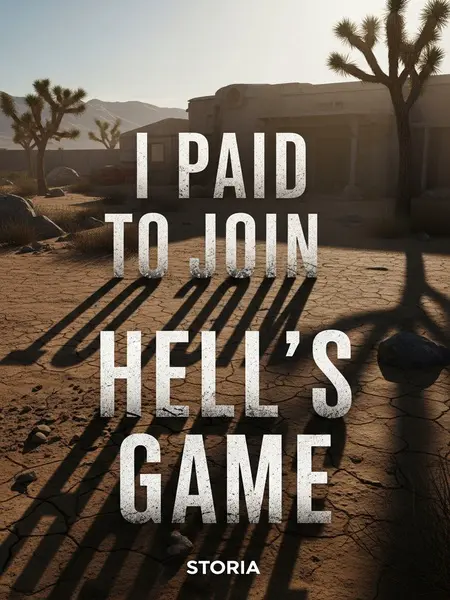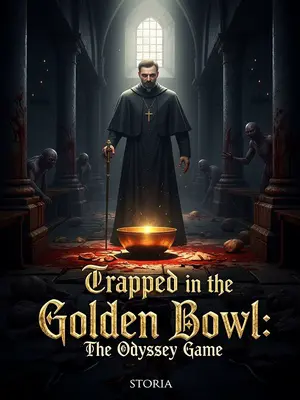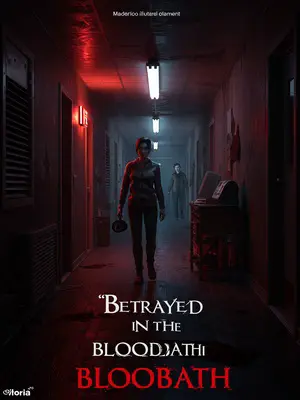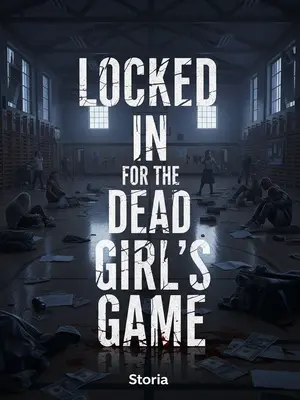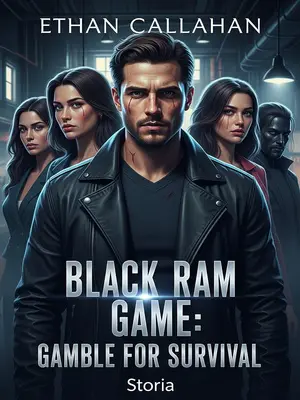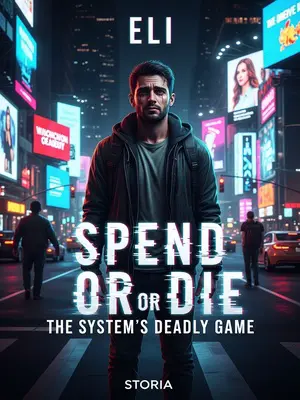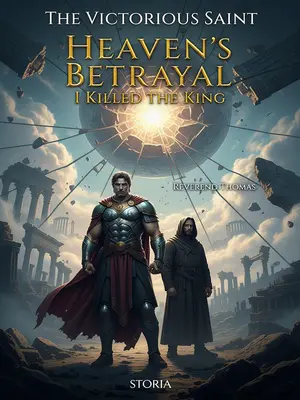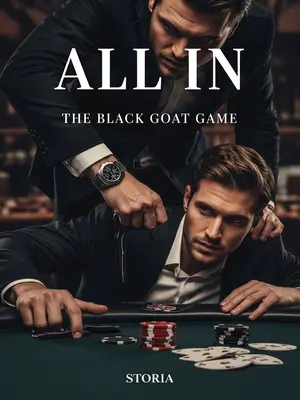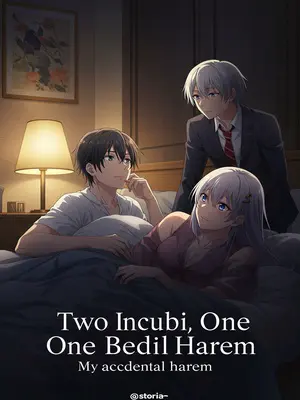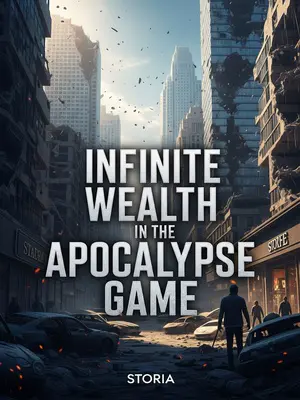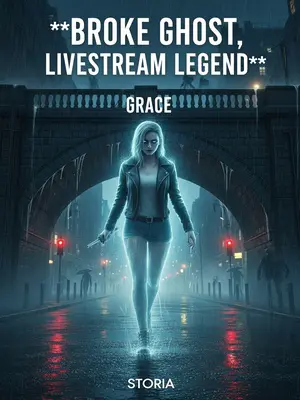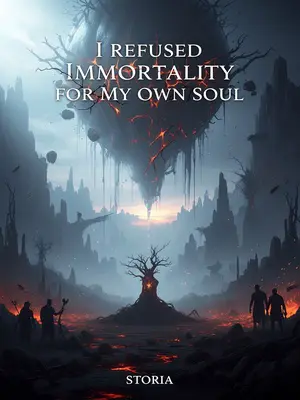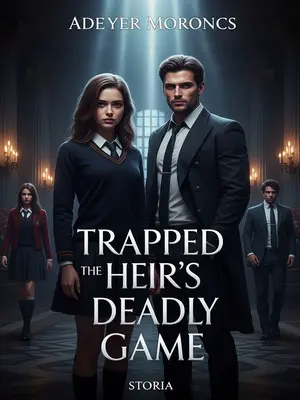Chapter 1: Welcome to Hell’s Casino
I sold myself to a scam ring in northern Arizona.
Sounds wild, right? Not exactly something you admit over drinks at a bar or drop into your Tinder bio. But here I am, dead center in the middle of nowhere—red dust, cactus, the kind of place where even the wind sounds tired. And yeah, I did it on purpose. Nobody twisted my arm. No sob story, just cold calculation and a backpack full of regrets.
On my first day here, I handed over a $150,000 buy-in—everything I had left—and officially joined the frontline crew running the scams.
That buy-in was all I had left—my savings, sold off my car, and, after a pause, the last whisper of a 401k. The building itself was a squat, ugly block of concrete ringed with chain-link and razor wire. They checked my cash, checked my ID, checked my nerves. After that, I was one of them. No turning back. Just a new name on the payroll, a fresh face in the pit—the scam pit, where everyone’s hustling for survival.
They say this place is hell on earth—hell on earth. But every morning when I wake up, I roll out of bed ready to run another con.
The beds here are thin, military-issue cots that groan with every move. No sunrise—just the flicker of fluorescent lights and the stink of burnt coffee. Some days, I almost forget what morning looks like. Still, I swing my feet down, stretch, and tell myself: today’s another shot. Another mark, another score. Hell on earth? Maybe. But hell’s where the action is.
People call me nuts. Maybe I am. But I know exactly what I’m after.
Let them talk. They don’t see the math, the angles—the angles. They don’t see the way the odds tip in my favor if I play it right. I’m not here for friends or validation. I’m here to win, whatever that means in a place like this.
The room was packed. Mr. Blake stood next to me, watching the screen like a hawk. Everyone held their breath. For a moment, it felt like the whole world was waiting.
It was the kind of tension you could taste—sweat, cheap deodorant, frayed nerves. Rows of monitors flickered blue. Mr. Blake, crisp button-down, hair too perfect, hovered just close enough to make my skin crawl. People shifted in their seats, eyes darting from me to the screen. No one dared speak.
I sat at the keyboard, just watching the chat window. I didn’t reply, while the words "the other party is typing" kept flashing on the screen.
My hands hovered over the keys, steady as stone. The chat pinged, little bubbles popping up, then vanishing. I could almost feel the guy on the other end sweating through his shirt. The cursor blinked, relentless. I waited. Sometimes, waiting is the hardest hustle of all. What if this is the moment he walks away?
Ricky, standing nearby, started fidgeting and finally blurted out, “Maya, what are you waiting for? Hurry up and push him!”
Ricky’s voice cracked the silence. He was always twitchy, a guy who looked like he’d been up for three days straight—maybe he had. He bounced on his toes, eyes darting from me to Mr. Blake, like a kid trying to impress the teacher. “Come on, Maya, don’t let him slip!”
I stayed silent, steady as a rock, pretending not to hear. Ricky wanted to say more, but Mr. Blake shot him a look and he clammed up.
Mr. Blake didn’t have to say a word—just a tilt of his head, a flicker in those cold blue eyes. Ricky shut up fast, shrinking back into the crowd. The whole room seemed to freeze, waiting for the next move.
I stared at the chat window for a long time. I waited. Finally, just before six, the guy on the other end caved—after all, I’d told him I clocked out at six, and the betting started at eight sharp tonight.
The seconds ticked by, my heart beating in time with the blinking cursor. Then, right on cue, the message popped up. I could practically hear the desperation in his words. Six o’clock was the magic hour, and he knew it. That’s when people break.
“Maya, please help me place a bet.”
His words came through with that edge of pleading—his messages sounded desperate, like his nerves were shot from a mile away.
With a ping, he sent over $600,000, just like that, to the account I gave him. The room exploded—cheers, high fives, Ricky whooping like he’d won the lottery. Mr. Blake gave me a nod of approval and clapped me on the shoulder.
The notification hit, and suddenly the tension snapped. People whooped, slapped desks, and even Ricky grinned like a kid at Christmas. Mr. Blake’s hand landed heavy on my shoulder—a gesture meant to congratulate, but it made my skin prickle. Still, I nodded back, keeping my poker face.
“Maya, you’ve got a real knack for this. Bonuses are going out tonight—go enjoy yourself.”
His touch made me flinch, but he didn’t care. He just gave me a long look, then ordered his crew to move the money out within ten minutes.
I tried not to let the shiver show. Mr. Blake’s eyes lingered, cold and unreadable. With a snap of his fingers, the runners scattered, phones in hand, already dialing up the network. Ten minutes was the rule—any longer and the feds might sniff it out.
That cash would be gone in a flash—withdrawn from ATMs all over the country, leaving almost no trace.
It’s a well-oiled machine. Guys in hoodies, fake IDs, ATM receipts crumpled in their fists. By the time the sun set, that money would be nothing but a ghost, split and laundered through a dozen states—Arizona, New Mexico, Texas. All part of the game. That’s how it works.
That’s one of the reasons I chose this place. Sometimes I wonder if that makes me smart or just reckless.
Efficiency. Ruthlessness. The kind of operation that doesn’t flinch or fumble. Here, you either make money or you disappear. I liked those odds.
Mr. Blake runs this compound. He’s about thirty, looks like some Ivy League grad—polished, soft-spoken, but word is, he’s cruel as hell, and everyone in the Southwest knows it. Nobody crosses him.
He’s the kind of guy who could sell you a dream and then bury you in the desert if you disappointed him. Rumor has it he got his start flipping houses in Phoenix, then flipped to something darker. Around here, he’s the law—and the law’s got a mean streak.
“Not bad,” Ricky said, shaking his head at me. I just lifted my foot and flashed my ankle cuff.
Ricky grinned, whistling low. The metal cuff dug into my skin, cold and heavy. It was the price of admission. He nodded, like we shared some private joke.
He laughed and gave me a playful slap on the head. “Good kid. You look so sweet and harmless—like a Girl Scout—but you’re something else.”
He tousled my hair, maybe trying to be friendly, but it felt more like a warning. "You got a poker face that’d fool the devil, Maya." I felt it—an edge behind the friendliness, a reminder to stay sharp.
But he still dug out the key and unlocked me, just like he promised: finish the job, lose the cuffs.
The click of the lock was the best sound I’d heard all day. For a second, I almost felt free. Almost.
All around us, people sat shoulder-to-shoulder, numbly hunched over keyboards, shackles on their feet. Ankles raw and bleeding. I could feel their envious stares, but I didn’t care. I just kept working.
The room stank of old sweat and disinfectant. Some people hadn’t showered in days, eyes bloodshot, hands trembling from too much caffeine and too little sleep. I kept my head down, fingers flying over the keys, blocking out everything but the job.
The worst performer in our group shot me a glance and got kicked out of his chair by Ricky. He hit the floor, chair and all, the metal biting into his flesh, blood seeping out.
The crash echoed. Ricky didn’t even blink. The guy’s face was pale, eyes wide with terror. Everyone else kept typing, pretending not to see. Around here, weakness was contagious. Was I next?
“Ricky, I messed up, man, please give me another shot, I’m begging you.”
His voice cracked, desperation raw and ugly. He clawed at the floor, nails scraping tile, as if he could dig himself out of this place.
He scrambled up, grabbed Ricky’s boot, and started sobbing, pressing his forehead to the dirty tile. Ricky just yanked the keyboard off the desk and smashed it over his head. Blood spattered everywhere. Then he was dragged off to the slaughterhouse.
The sound of the keyboard breaking was sharp and final. The guy’s blood pooled on the floor, dark and sticky. Two muscle-bound guards hauled him away, leaving a smear behind. Nobody looked up. This was just Tuesday.
I’ve passed by that place. It’s a pitch-black warehouse full of chains, whips, things I don’t want to name, and the sound of people screaming.
You don’t forget the smell—metal, sweat, and something sour. Sometimes, late at night, the screams drift all the way to the dorms. You learn to tune it out, or you don’t sleep.
I saw a guy have his eyes burned out with a hot iron, his tendons sliced, his nose hacked off and stuffed in a bucket, then tossed to the dogs.
That memory sticks like a burr under the skin. The guards joked about it later—passing around the bucket. I learned fast: never make eye contact. Never ask questions.
They keep a pack of vicious wolfdogs in the yard—big, mean, half-wild things bred for intimidation and blood. The folks who get chewed up in the slaughterhouse end up as dog food.
At night, the dogs howl, their eyes glowing in the security lights. No one tries to run. You’d be better off facing the cops.
So when Ricky said to send him to the slaughterhouse, I knew he was done for. Around here, once you’re used up, you’re no better than a pig or a stray. I’ve gotten used to it.
It’s a lesson they drill into you: you’re only as good as your last haul. Mercy is for the weak. I keep my head down and my mouth shut.
I only got $3,000 for this job. When they tossed the cash at me, I didn’t feel much, but I still put on a show—smiled, thanked the boss, looked grateful.
Three grand in a fat envelope, tossed like a dog treat. I grinned, gave a little bow, played the grateful worker. That’s what they want to see—gratitude, humility, a little fear. It keeps the wheels turning.
Because here, not wanting anything is suspicious—people without weaknesses are dangerous.
If you act too cool, too calm, they start to wonder. Everybody here wants something—money, freedom, revenge. If you want nothing, you’re a threat.
At the celebration that night, Mr. Blake praised me in front of everyone. Among the crowd, some were missing an eye, some a finger—even the lucky ones were covered in bruises. But everyone cheered.
They rolled out a few pizzas, warm beer, and a scratchy speaker blasting classic rock. Mr. Blake stood on a crate, raising his glass. “To Maya, our new ace!” The crowd whooped, banging their cups on the tables. Some looked jealous, some just tired. But for one night, I was the hero.
I was different. After a month here, my arms and legs were all still intact. I hadn’t even been slapped—because I was the best scammer they had.
No broken fingers, no black eyes. That made me an outlier, and outliers don’t last long unless they keep delivering. I kept my guard up, always.
I stood in the courtyard, looking up at the stars. Mr. Blake wandered over. He looked surprised that anyone here could still care about stargazing, even with the occasional screams from the yard. He asked,
The Arizona sky is big, wide open. Stars like spilled sugar. I leaned against the wall, hands in my pockets, breathing in the dry air. Mr. Blake’s shadow stretched beside me, silent for a long moment before he spoke.
“Maya, why’d you come here?”
His voice was low, almost gentle. It was the first time he’d asked me anything personal. The question hung in the air, brittle as glass.
“Boss, I want to make real money,” I answered, straight-faced as always.
I met his gaze, steady as I could. I’d practiced this answer in the mirror—flat, believable, nothing to give away.
Mr. Blake seemed satisfied, but the next second, I felt cold steel pressed to my temple.
He moved so fast I barely saw it—a gun, pressed hard against my head. My heart stuttered. In the darkness, the barrel felt like ice.
“Maya, I don’t like being lied to.” He smiled, but his eyes were cold as the desert at night.
That smile was the stuff of nightmares. I didn’t flinch, but inside, every alarm was blaring. When Mr. Blake smiled, you knew you were standing on a trapdoor.
He almost never smiles. When he does, it’s a bad sign.
Everyone knows it—smiles mean someone’s about to bleed. I kept my face blank, waiting for the cue.
So I told the truth, no point hiding: “I killed someone. If I stayed back home, I’d rot in prison. I want money, and I want to live to spend it.”
My voice barely shook. I gave him the story, short and sharp. No tears, no excuses. Just the facts. It was safer that way.
I knew that the second I walked into this compound, they’d dug up everything about my past.
